Thanks @satishwe for sharing your book. It’s high time I buy one for myself. This is my second reading and considering how much this book has influenced me as a person in the last 1.5 years, I thought I should keep notes this time so I could refer directly to my notes instead of re-reading the complete book every year.
This is Part #1 of my Notes on Poor Charlie’s Almanac. Sometimes they are direct reproductions, sometimes paraphrased or summarized. Unless otherwise specified, a lot of this should be attributed to CM. I have tried to mention who a line or idea should be attributed to, as not all that follows is from CM alone.
WB on CM’s traits that contributed to his success - Honesty and integrity and always doing more than his share and not complaining what the other person does
If you go through life making friends with the eminent dead who had right ideas, I think it will work better for you in life and work better in education. (I think you learn economics better if you make Adam Smith your friend)
People couldn’t believe that I suddenly made myself a subordinate partner to Warren, but there are some people that is okay to be a subordinate partner to. I didn’t have the kind of ego that prevented it. There are always people who be better at something than you are. You have to learn to be a follower before you become a leader. People should learn to play all roles.
Early CM is a horrible career model for the young, because not enough was delivered to civilization in return for what was wrested from capitalism
In a value system like Cicero’s, I would be pretty likely to rise.
If the choice were given to you, would you prefer Milo’s strength of body or Pythagoras’s ability of mind? To Cicero’s this was rhetorical question with only one answer
Can anything be more senselessly absurd that the nearer we are to our journey’s end, we should still lay in more provisions for it? (Cicero on piling wealth well into old age)
The best Armour for old age is a well spent life preceding it. (de Senectute, Cicero)
Life’s Tragedy is that we get old too soon and wise too late. When you’re finished changing, you’re finished - Ben Franklin on Aging
CM had a phenomenal ability to Chinese wall off intrusive distractions from whatever mental task he was engaged in
Find out what you’re best at and keep pounding away at it
Munger Approach to Life, Learning & Decision Making
In business, we often find that the winning system goes almost ridiculously far in maximising and/or minimising one or a few variables - like the discount warehouses of Costco
You must know the big ideas from big disciplines and use them routinely - all of them, not just a few. Most people are trained in one model, economics for eg. - and try to solve all problems in one way. To a man with a hammer, everything looks like a nail. This is a dumb way of handling problems
Ecosystem approach to investment analysis
Simplicity is the end result of long, hard work, not the starting point (Maitland)
What you need is a latticework of mental models in your head
Faced with the choice between changing one’s mind and proving there is no need to do so, almost everyone gets busy on the proof - Galbraith
Warren and I are very good at destroying our own best loved ideas. Any year you don’t destroy one of your best-loved ideas is probably a wasted year
Redundancy/backup system model from engineering, compound interest model from math, breakpoint/tipping-point/autocatalysis models from phy & chem, Darwinian synthesis model from Bio, cognitive misjudgement models from psychology
Lollapalooza effect - You must see the relatedness and the effects from the relatedness.
Life is just one damn relatedness after another (Julian Huxley)
There is no better teacher than history in determining the future
CM sat for years at a time with $10-$12 million in treasuries or municipals, just waiting, waiting…
The big money is not in the buying and selling, but in the waiting (Livermore)
A portfolio of 3 companies is plenty of diversification
Not buying and selling often - successful investment career boils down to a handful of decisions
Once in a while, you will find a ‘fat pitch’ that is slow, straight and right in the middle of your sweet spot. Then you swing hard (Li Lu)
It is equally harmful if you discover a fat-pitch but are unable to swing with the full weight of your capital (Li Lu)
Munger’s inversion - All I want to know is where I’m going to die, so I’ll never go there
Physics Envy - The common human craving to reduce enormously complex systems (such as those in economics) to one-size-fits-all Newtonian formulas
A scientific theory should be as simple as possible, but no simpler (Einstein)
In the short run, the market is a voting machine but in the long run, a weighing machine (Ben Graham)
Investors should purchase stocks like they purchase groceries - not like they purchase perfumes (Ben Graham)
If a thing is a bad idea, it is hard to overdo. But where there is a good idea with a core of essential and important truth, you can’t ignore it. And then it’s so easy to overdo it. So the good ideas are a wonderful way to suffer terribly if you overdo them
CM’s Investment Evaluation Process - The #1 idea is to view a stock as an ownership of the business and to judge the staying quality of the business in terms of its competitive advantage. Look for more value in terms of discounted future cash-flow than what you are paying for. Move only when you have an advantage. You have to understand the odds and have the disciplines to bet only when the odds are in your favor. We just keep our heads down and handle the headwinds and tailwinds as best we can, and take the result after a period of years.
Three baskets - Yes, No and Too tough to understand. Puts pharma & tech in the too tough to understand. Goes for easy to understand, dominant businesses that can sustain itself and thrive in all market environments. Heavily promoted IPO deals are a strict No.
Placer Mining - The process of sifting through piles of sand for finding specks of gold. CM despises this approach and instead applies big ideas from big disciplines to find the large, unrecognized nuggets of gold that sometimes lie in plain sight on the ground
On circle of competence - To ask the question of whether you are past the boundary is to answer it
CM views financial reports with dose of skepticism
Addition factors to financial reports - current and prospective regulatory climate, state of labour, supplier, and customer relations; potential impact of changes in technology; competitive strengths and vulnerabilities; pricing power; scalability, environmental issues and importantly - hidden exposures.
Recasts financial statements to fit his own view of reality - including free cash or owner’s earnings being produced, inventory and other working capital, fixed assets and frequently overstated intangible assets and goodwill.
If the moat is widened every year, the business will do very well
On promoters - Do they allocate capital intelligently on behalf of the owners, or do they overcompensate themselves, or pursue ego-oriented growth for growth’s sake?
Comparing value (what you get) with price (what you pay)
A great business at a fair price is superior to a fair business at a great price
Never fool yourself, and remember you are the easiest person to fool (Feynman)
Bridges are designed with backup systems and extra capacity to prevent failures - so too should investing strategies (Margin of safety)
To put runs on the scoreboard, one must watch the field, not the scoreboard (WB)
When all of man’s information is confined to the field in which he is working, the work is never as good as it ought to be (Henry Firestone)
CM scores himself not so much on whether he won the hand, but rather on how well he played it. Sloppy preparation and decision making are never excusable because they ARE controllable
He does not pick around the edges, take “initial positions” or make “small, speculative bets”. His approach is of extreme patience combined with extreme decisiveness.
He routinely considers factors such as conversion, i.e, how the laws of thermodynamics intersect with the laws of economics
Just because other people agree or disagree with you doesn’t make you right or wrong
Mimicking the herd invites regression to the mean
If you took our top fifteen decisions out, we’d have a pretty average record
There are worse situations than drowning in cash and sitting, sitting and sitting. I remember when I wasn’t awash in cash - and I don’t want to go back
More important than the will to win is the will to prepare
Resist the craving for false precision, false certainties etc.
Highest and best use is always measured by the next best use (Opportunity Cost)
Guard against effects of hubris and boredom
Part #2 when time permits.
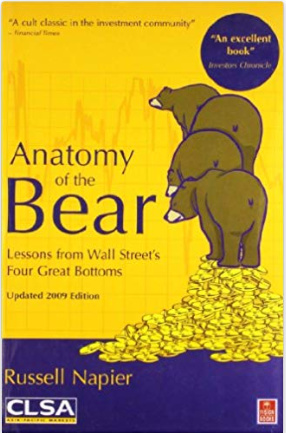
![]()

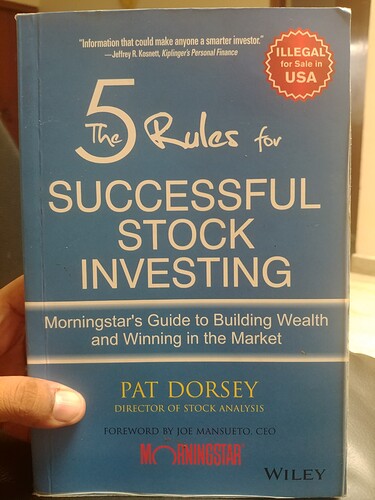
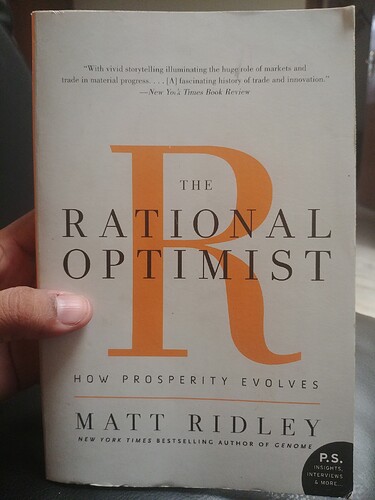
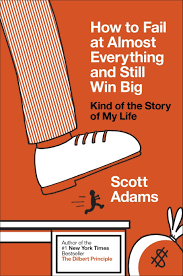
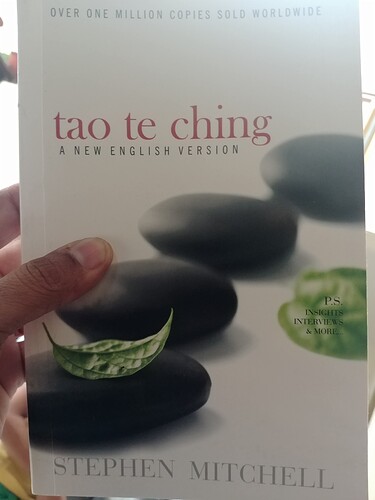

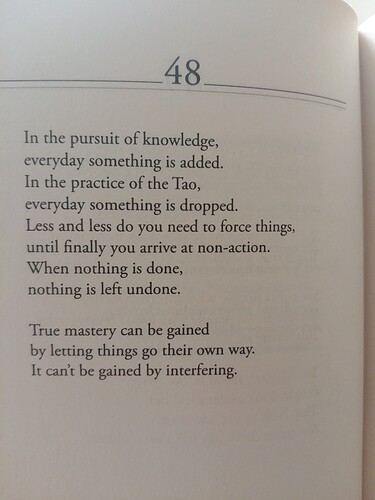



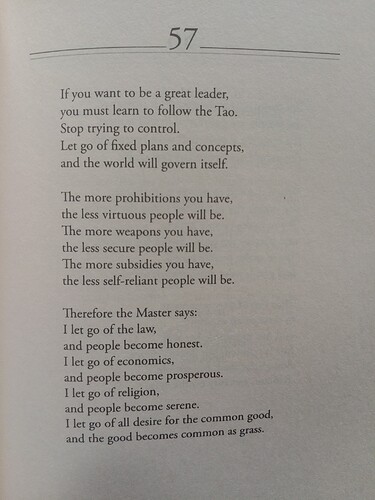
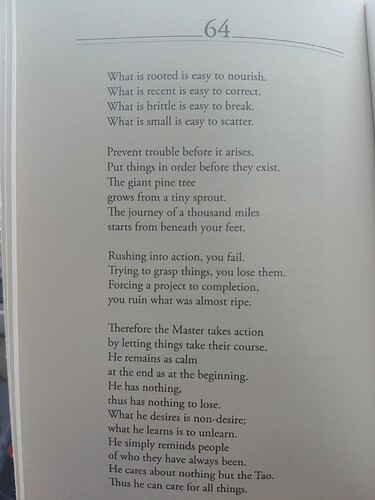
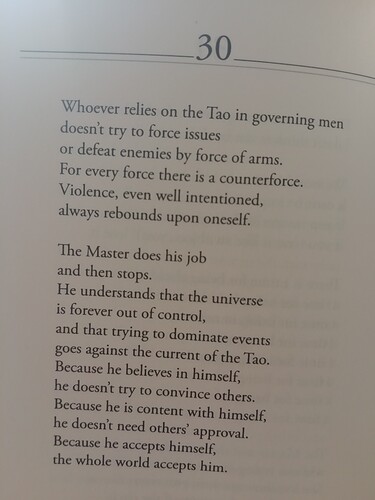
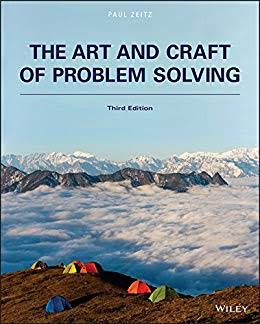
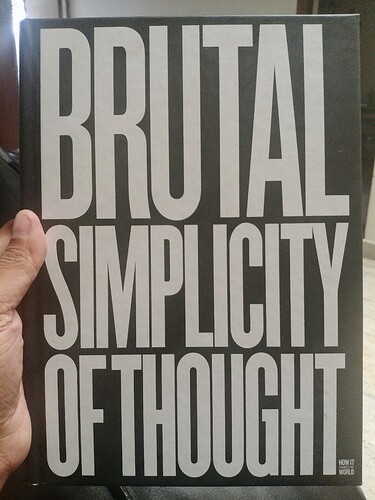
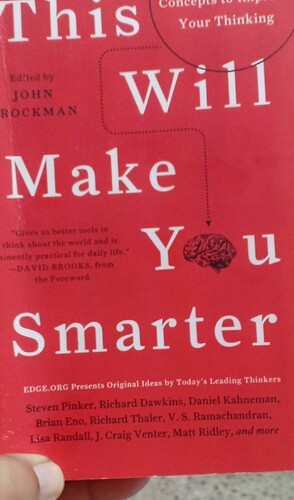
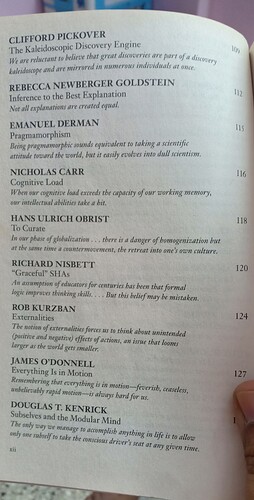
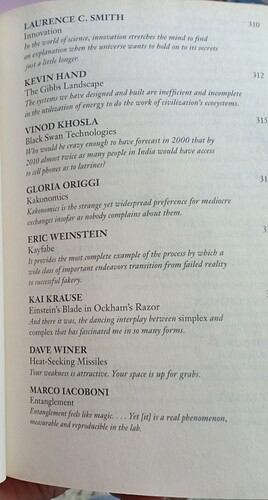
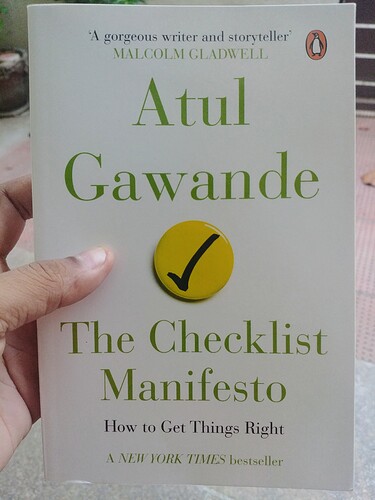
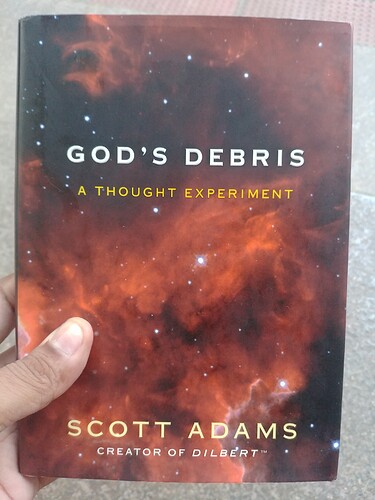
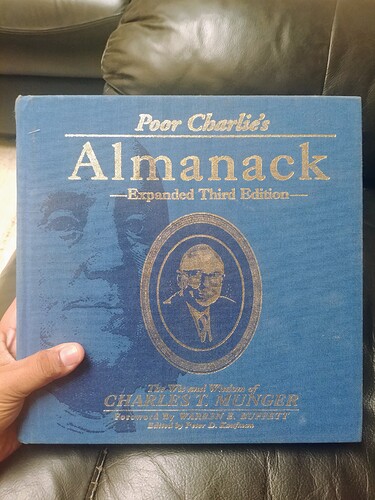
 I did mine sometime back and I was reassured (equal parts embarassed, but that’s okay) that I was making some progress.
I did mine sometime back and I was reassured (equal parts embarassed, but that’s okay) that I was making some progress.